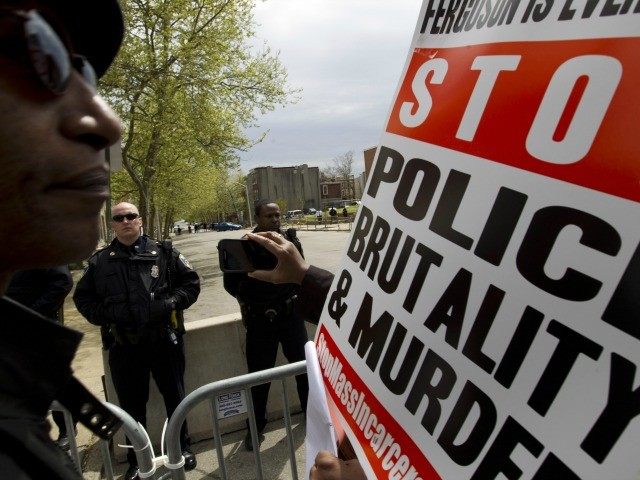As blacks from Baltimore and other parts of the country riot in response to Freddie Gray’s April 19 death following his arrest on the 12th, The Atlantic reports that blacks increasingly “experience the police not as benevolent defenders of the peace but as an arbitrary menace.”
In fact, they suggest that black citizens view police “as more likely to violate a citizen’s rights than preserve them.”
Ironically, The Atlantic is the first to admit that no evidence of police brutality against Gray has been presented. They report: “The police say Gray didn’t resist arrest and that officers didn’t use force, which seems to be mostly corroborated by video shot by bystanders.”
However, they couple this admission with a not-so-veiled criticism, saying, “Baltimore authorities say they’re investigating how the 25-year-old was hurt—a somewhat perverse notion, given that it was while he was in police custody, and hidden from public view, that he apparently suffered injury.” And they follow this by calling into question why Gray was arrested “in the first place.”
They use the “lack of evidence” in the Gray case as a segue to discuss the seeming mounds of evidence in other cases, such as the video evidence in South Carolina, where Walter Scott was seen running away from Officer Michael Slager before allegedly being shot to death. And they cite an April 2 incident in Tulsa, Oklahoma, where a sheriff’s deputy claimed to be reaching for a taser when he allegedly grabbed a pistol instead and shot and killed Eric Harris—a black man.
In total, by the time the article approaches conclusion, The Atlantic has admitted there is no evidence of police brutality in this case, but this admission was followed by such pronounced examples of alleged brutality that readers can easily lose track of where brutality may have been an issue and where it was not.
Then The Atlantic then suggests:
The obvious tie between the Gray and Scott cases, though, is that in both incidents police apprehended black men under questionable circumstances—Scott for a busted tail light, Gray for, well, it’s unclear. In both cases, the black community feels its members were unfairly targeted by the local police.
Follow AWR Hawkins on Twitter @AWRHawkins. Reach him directly at awrhawkins@breitbart.com.

COMMENTS
Please let us know if you're having issues with commenting.